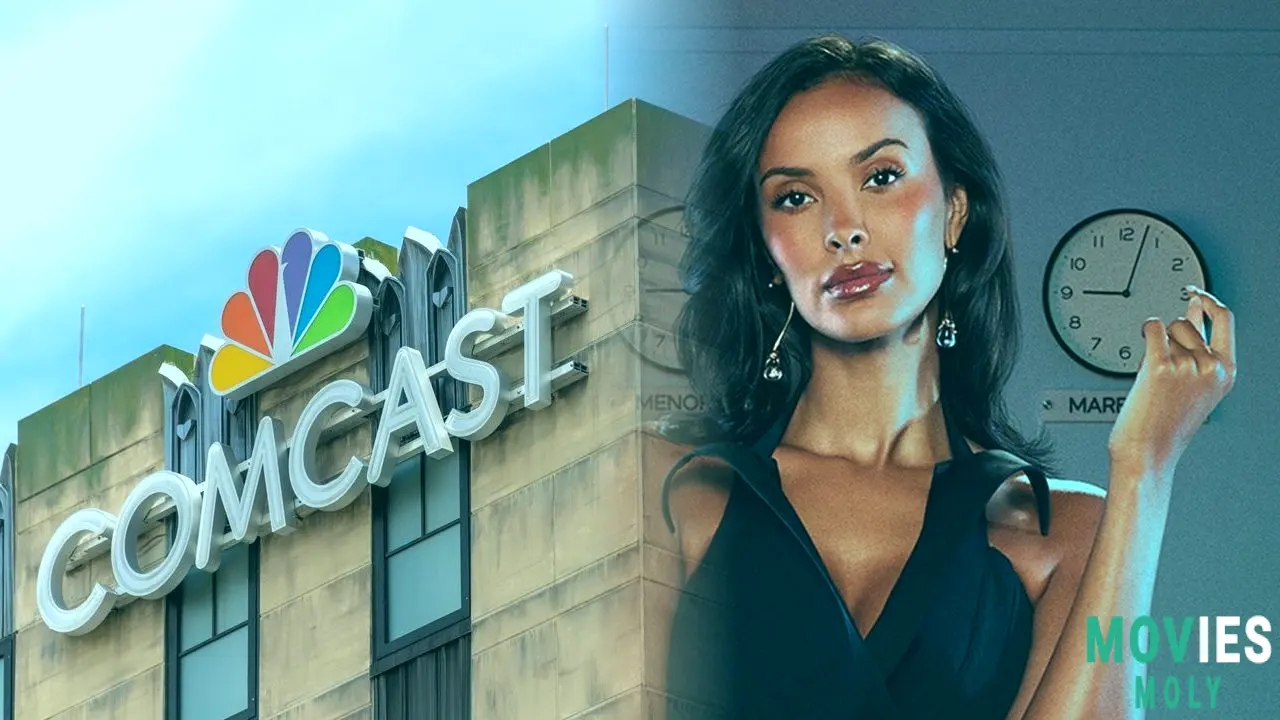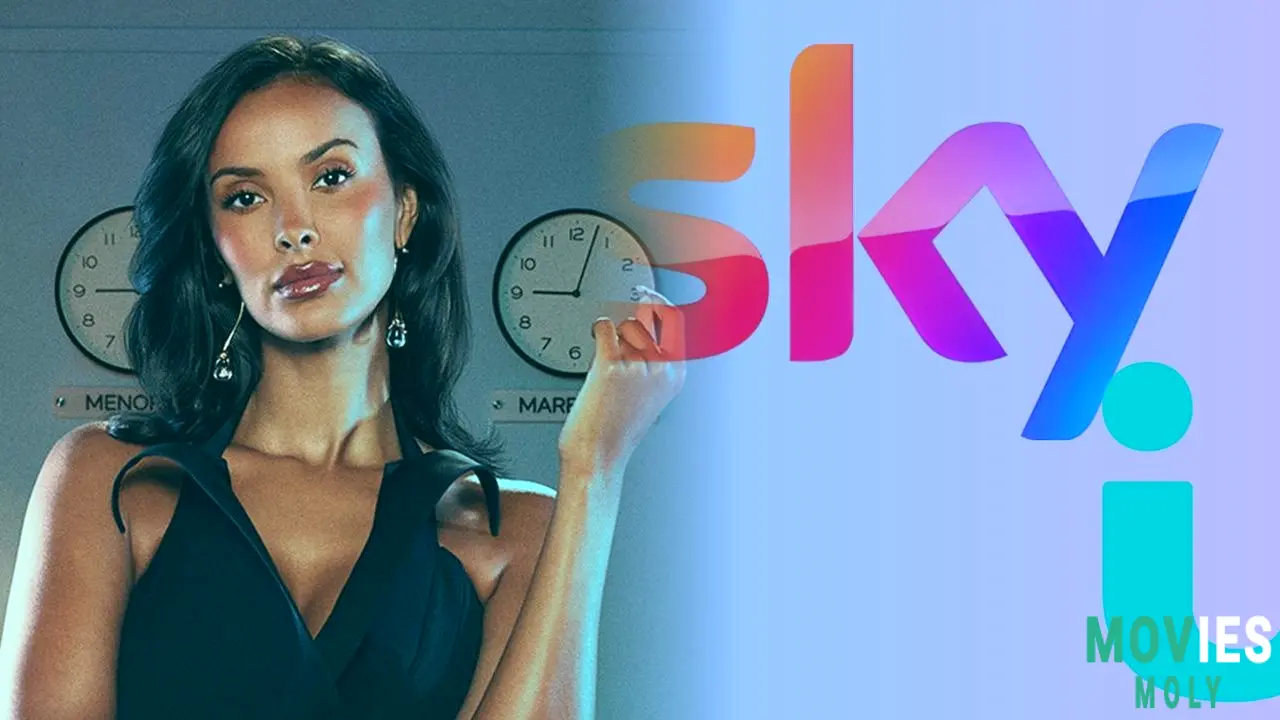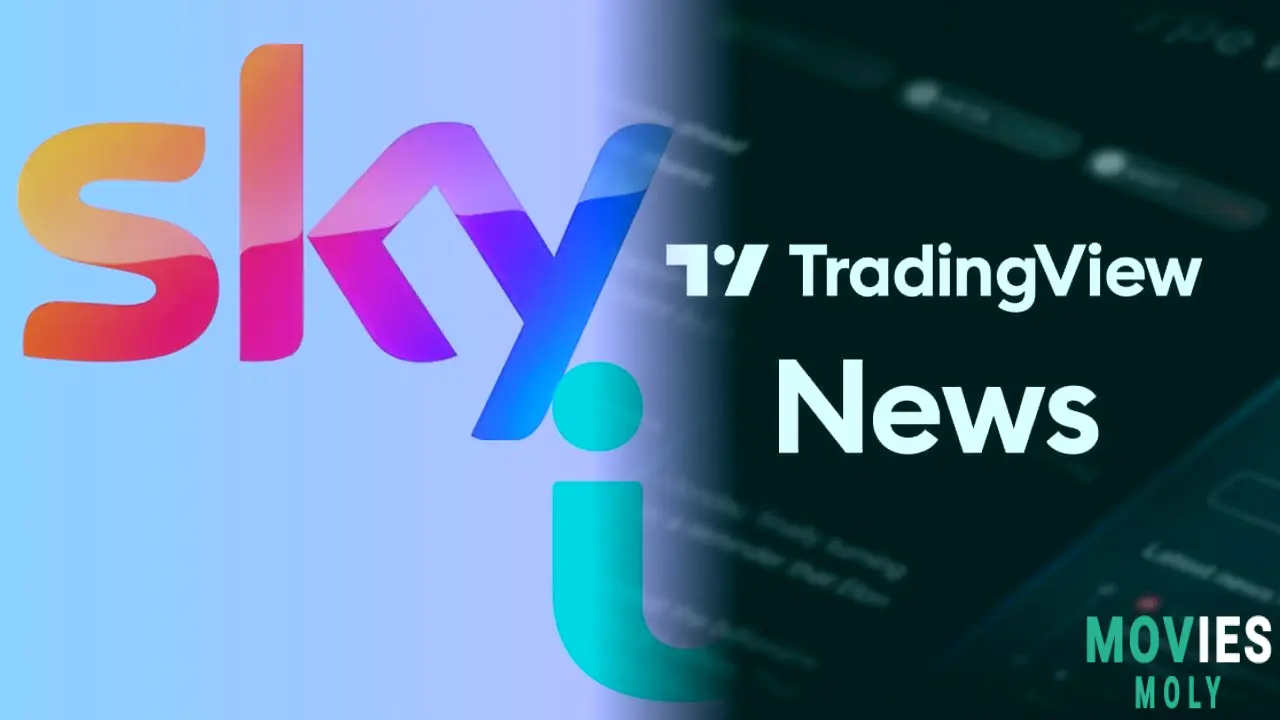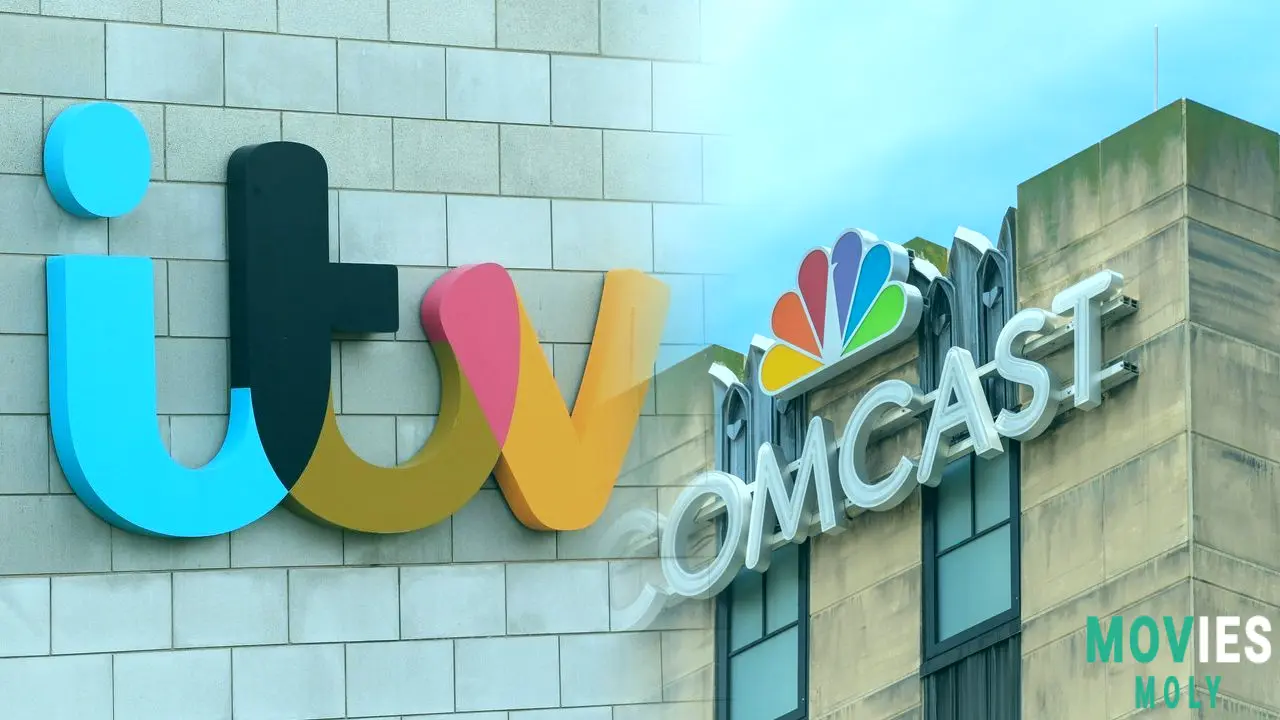Hold onto your remotes! Itv is in preliminary talks to sell its broadcasting and streaming business to Sky, owned by US giant Comcast, for a whopping £1.6 billion. It's a move that could completely change how we watch TV in the UK.
TL;DR- ITV's Media & Entertainment division, including its free channels and ITVX, is in talks to be sold to Sky for £1.6 billion.
- ITV Studios, the hit-making production arm behind shows like Love Island and Mr Bates vs The Post Office, is not part of the proposed deal.
- The potential acquisition faces big hurdles, including regulatory concerns over market dominance and the political implications of US ownership.
Imagine a world where your favourite ITV drama, say, a gripping episode of Coronation Street, flashes a Sky logo before the credits. Or perhaps, the ITVX app on your smart TV suddenly looks a lot like Sky Go. This isn't just a hypothetical thought experiment anymore. The UK's commercial television landscape is buzzing with seismic news: ITV is in preliminary discussions to sell its broadcasting arm to Sky, a company already under the wing of American media behemoth, Comcast.
The Big Picture: Why Now is the Time for Major Changes?
This potential blockbuster deal, valued at around £1.6 billion (that's about $2.1 billion), focuses specifically on ITV's Media and Entertainment (M&E) division. This includes all those free-to-air channels we grew up with, plus the newer ITVX streaming service. But here's the kicker: ITV Studios, the powerhouse production house responsible for global hits like Love Island, I'm a Celebrity... Get Me Out of Here!, and the critically acclaimed Mr Bates vs The Post Office, is staying put, at least for now.
So, why the big shake-up? Well, traditional television has been feeling the heat for a while now. Streaming giants like Netflix and Disney+ have completely changed the game, and even YouTube is now a major player, ranking as the UK's second most-watched media service after the BBC, according to media regulator Ofcom. This intense competition, coupled with a 'softening' UK economy and cautious advertisers, has put significant pressure on ITV's ad revenue, which is forecast to be 9% lower in the last quarter of the year. (Source: CNBC, "ITV in talks to sell media unit to Comcast's Sky for £1.6 billion," Nov 7, 2025; TheWrap, "ITV in Talks to Sell Media, Entertainment to Comcast and Sky for $2.1 Billion," Nov 7, 2025).
A 'Jewel in the Crown' Finds Its Own Path Forward
For years, analysts have pointed to ITV's production arm, ITV Studios, as the 'jewel in ITV's crown,' according to analyst Dan Coatsworth from AJ Bell. This part of the business makes shows not just for ITV, but for a whole host of platforms including the BBC, Netflix, and Amazon. The idea behind splitting the company is to let ITV Studios shine brighter, 'unencumbered by a legacy linear [TV] business,' as described by Tom Harrington from Enders Analysis. With a focus solely on content creation, it could become an even more attractive target for content-hungry streamers.
ITV's share price certainly reacted to the news, jumping by 15-18% to around 78-80 pence. While that's a nice boost, it's still a far cry from its 2015 peak of 258 pence. This move is seen by many, including ITV chief executive Carolyn McCall, as a necessary step to unlock value for shareholders and adapt to the evolving media landscape. The company also announced plans for an additional £35 million in cost savings, which will unfortunately lead to some programme delays until next year.
The Big Hurdles: Navigating Competition and Regulatory Concerns
It's not all smooth sailing, though. This proposed deal faces three immense problems: price, politics, and regulation, as pointed out by Nils Pratley in The Guardian. (Source: The Guardian, "Three big problems with ITV’s talks to sell television business to Sky: price, politics and regulation," Nov 7, 2025).
First, the price tag. Is £1.6 billion enough? For a broadcasting division that generated operating profits of £250 million last year and still pulls in massive live audiences for big sporting events, some experts, like The Guardian's Nils Pratley, suggest it might be an undervaluation. This division has consistently defied gloomy predictions for a decade, still offering a mass audience that advertisers crave.
Then there's the regulatory giant. Media analyst Ian Whittaker told the BBC that a combined Sky and ITV would command '70% plus' of the UK TV advertising market. In 'normal circumstances,' this kind of dominance would likely be rejected by regulators. However, Sir Peter Bazalgette, a former ITV chair, argues that regulators need to 'redefine' the advertising market to include tech giants like Google and Meta as rivals, not just traditional TV players. (Source: BBC, "ITV in talks to sell television business to Sky," 4 hours ago).
A Question of British Identity and Cultural Significance
Beyond the numbers, there's a significant political and cultural dimension. ITV isn't just a broadcaster; it's woven into the fabric of British life, with its regional roots and public service obligations. Handing control of such a 'national treasure' (The Independent) to a US-owned conglomerate raises questions about media plurality and the future of services like ITV's news, especially as Comcast's 10-year commitment to loss-making Sky News expires in 2028. (Source: The Independent, "How do you value an asset like ITV?," Nov 7, 2025).
Sky's identity, since its £30 billion acquisition by Comcast in 2018, has already become harder to discern within its US parent's accounts. The concern is that ITV's uniquely British flavour, its capacity to persuade millions to watch at the same time, and its powerful impact (think Mr Bates vs The Post Office moving the dial on real-world justice) might be diluted.
"Free to air channels across world are not seen to have a great amount of value... there's going to be an inevitable consolidation of domestic broadcasters all across Europe." — Sir Peter Bazalgette, former ITV chairman (Source: BBC, "ITV in talks to sell television business to Sky," 4 hours ago)A Real-World Scenario: What This Could Mean for Content Creation
Example: Imagine a small independent production company in Manchester, which used to pitch its regional drama ideas directly to ITV's local commissioning editors. With a US-owned Sky at the helm, the decision-making might shift further away from Shepherd's Bush to Philadelphia. While public service obligations to produce original UK content, including from outside London, would technically remain, the challenge could be in ensuring those distinctive regional voices continue to get a platform amidst a larger, more globally focused strategy. It's a subtle but significant trade-off: greater financial stability versus localised creative autonomy and responsiveness.
The Trade-offs and the Shifting Future of UK Television
This potential deal highlights a crucial trade-off. On one hand, a merger could create a 'UK-focused streaming giant,' as some news reports suggest, better equipped to compete with global players. Sky's robust subscription model could provide a more stable revenue stream, potentially safeguarding the future of UK television and the invaluable content it produces. Nick Manning of The Drum calls it a "tectonic event" that could "safeguard the future of TV in the UK," advocating for a "hybrid model." (Source: The Drum, "A Sky acquisition of ITV would shift the tectonic plates of UK advertising," Nov 7, 2025).
On the other hand, it consolidates a huge chunk of the UK's commercial media power under foreign ownership, raising legitimate concerns about diversity of voice, media plurality, and local cultural relevance. Comcast is playing a high-stakes game. They're effectively asking politicians and regulators if they truly prioritise 'pro-business and pro-growth' policies in a rapidly changing global media landscape, hinting that they might walk away if the answers aren't favourable. Whatever the outcome, this is a pivotal moment that marks the potential end of an era for British television as we know it.
Practical Takeaways: What You Need to Know

- Stay Tuned: This is a preliminary discussion; nothing is finalized, and regulatory approval will be a major, complex hurdle.
- Content Split: ITV Studios (the creative engine behind shows like Love Island and Coronation Street) remains independent, while ITV's traditional channels and the ITVX streaming service could become part of Sky.
- Industry Shift: The proposed move reflects the ongoing struggle of traditional broadcasters against global streaming giants and declining linear TV advertising revenues.
- Viewer Impact (Potential): If the deal goes through, expect a more integrated viewing experience between ITV's current offerings and Sky's platforms. The long-term impact on the availability of new, original UK-centric content on free-to-air channels, and the broader advertising landscape, remains to be seen.
FAQ: Your Questions Answered

Sources

- BBC: "ITV in talks to sell television business to Sky" (Published: 4 hours ago as per reference article)
- CNBC: "ITV in talks to sell media unit to Comcast's Sky for £1.6 billion" (Published: Nov 7, 2025)
- The Guardian: "Three big problems with ITV’s talks to sell television business to Sky: price, politics and regulation" by Nils Pratley (Published: Nov 7, 2025)
- The Independent: "How do you value an asset like ITV?" (Published: Nov 7, 2025)
- TheWrap: "ITV in Talks to Sell Media, Entertainment to Comcast and Sky for $2.1 Billion" by JD Knapp (Published: Nov 7, 2025)
- The Drum: "A Sky acquisition of ITV would shift the tectonic plates of UK advertising" by Nick Manning (Published: Nov 7, 2025)




